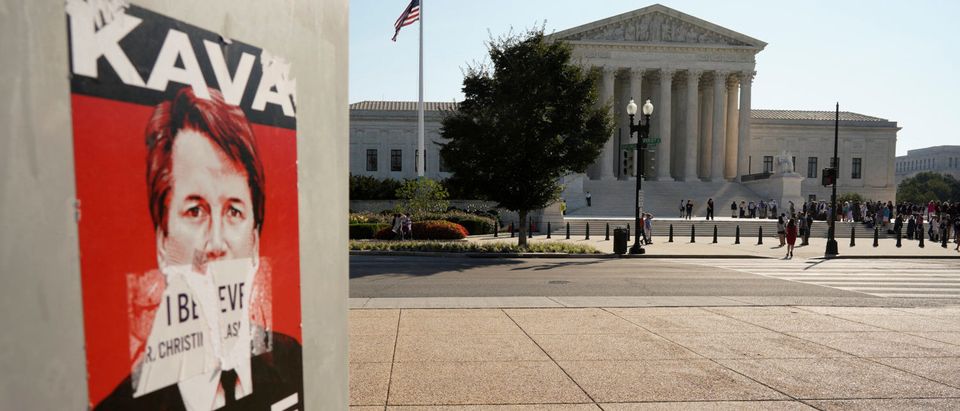The bitter and as yet unresolved conflict over Judge Brett Kavanaugh’s nomination to the Supreme Court left the nation’s highest judicial tribunal shorthanded as it inaugurated a new term Monday.
It is the second time in three years that the court opened a new term without a full complement of justices. Justice Anthony Kennedy’s retirement took effect on July 31.
The late Justice Antonin Scalia’s death left the Supreme Court with eight members from February 2016 through April 2017. The court’s work during this period frequently featured unanimity or high degrees of consensus, and a docket devoid of politically fraught cases. When the court divides evenly, the judgement of the lower court is automatically affirmed.
During the 2016-2017 term, the high court released 69 opinions — 41 of those decisions were unanimous, while 28 were not, just the second time in the modern era in which unanimous rulings outnumbered divided ones. Of the 28 non-unanimous decisions, 21 were decided with at least six votes. All told, at least two-thirds of the justices supported the outcome in 62 of the 69 rulings issued that term, a remarkable rate of agreement.
The eight-member court largely avoided contentious cases. The decisions that attracted the most public interest — to the extent there were any — involved a provision of federal law banning disparaging trademarks, and a dispute in Missouri over public funding for playground resurfacing at a Lutheran church.
Reflecting on the experience of the shorthanded court, the justices seem proud of their careful maneuvering, while acknowledging frustrations that sometimes arose. (RELATED: Kavanaugh Girlfriend Denies 1998 Assault Described In Anonymous Letter, NBC Report)
“Having eight justices was unusual and awkward,” Justice Samuel Alito conceded at an April 2017 conference shortly after Justice Neil Gorsuch’s confirmation. “That probably required having a lot more discussion of some things and more compromise and maybe narrower opinions than we would have issued otherwise.”
Justice Elena Kagan gave a similar assessment at an event in Brooklyn, New York, in September.
“We’re not going to take big, big steps when we’re divided in this sort of way,” Kagan said. “We’re going to find compromise positions and keep talking until we do.”
“Sometimes it had a bit of a ridiculous air to it,” she added.
The 2018 term seems set to follow a similar track, at least at this moment. The current docket is heavy on doctrinally important cases, but none that are likely to engage the general public. When the court gathered for its new term Monday, it heard oral arguments in Weyerhaeuser Company v. U.S. Fish and Wildlife Service, a challenge to the government’s power to designate private land as a critical habitat under the Endangered Species Act.
Other important matters on the docket include Gundy v. U.S., a separation of powers case that could clear the way for future challenges to congressional delegation of power to the executive branch. A double jeopardy case called Gamble v. U.S. has not yet been set for argument.
Though the Constitution forbids duplicate prosecutions for the same crime, under the “separate sovereigns” exception the court allows states and the federal government to pursue dual prosecutions for the same crime.
Send tips to kevin@dailycallernewsfoundation.org.
All content created by the Daily Caller News Foundation, an independent and nonpartisan newswire service, is available without charge to any legitimate news publisher that can provide a large audience. All republished articles must include our logo, our reporter’s byline and their DCNF affiliation. For any questions about our guidelines or partnering with us, please contact licensing@dailycallernewsfoundation.org.


